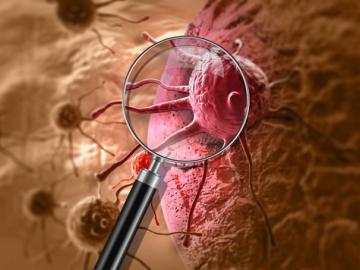Agent of Mischief
Loss of key protein unleashes cascade that culminates in rhabdoid tumor formation
Loss of key protein unleashes cascade that culminates in rhabdoid tumor formation

Rhabdoid tumors are among the most recalcitrant childhood cancers, and scientists have long sought ways to understand what drives their resilience and makes them impervious to treatment.
Now researchers from Harvard Medical School, St. Jude Children’s Research Hospital and elsewhere have uncovered a molecular chain of events that interferes with a key mechanism that regulates cell behavior and controls tumor formation.
Rhabdoid tumors typically start out in the kidneys, but they can also arise or migrate into the brain and other soft tissues. While rare—they account for less than 2 percent of pediatric kidney cancers—rhabdoid tumors are highly lethal with a survival rate of less than 25 percent.
The report of the multi-institutional team’s findings, published Dec. 12 in Nature Genetics, describes how the loss of a protein, SMARCB1, can disrupt the work of a regulatory mechanism, thereby fueling uncontrolled malignant cell proliferation and the continued survival of rhabdoid tumors...
© 2025 by the President and Fellows of Harvard College